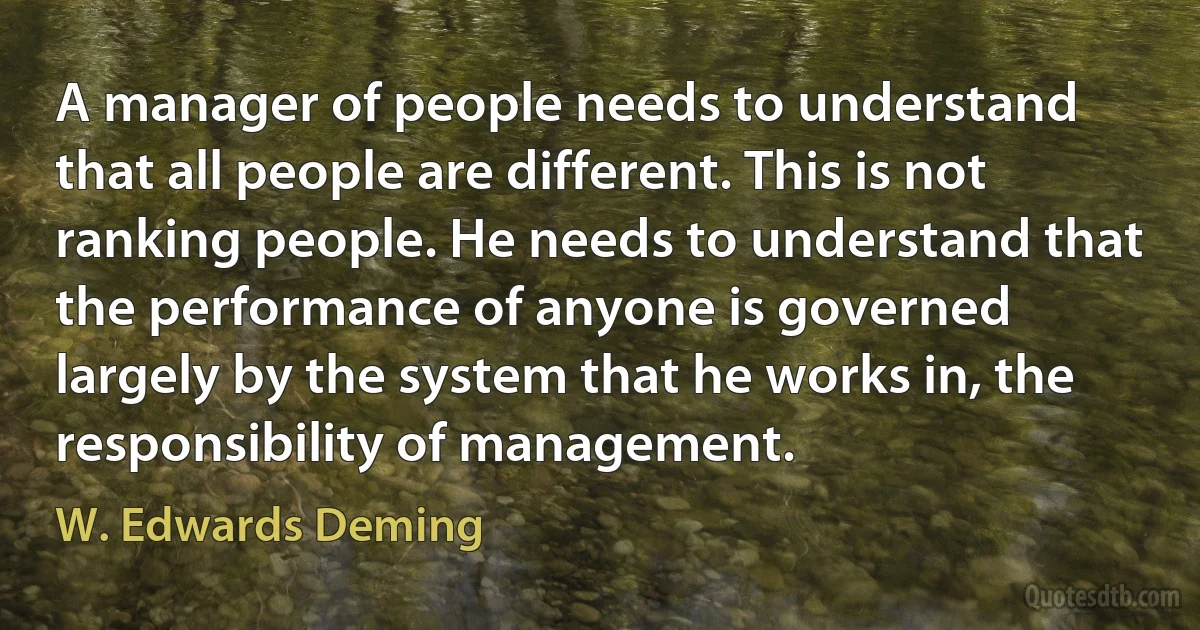W. Edwards Deming quotes
Foremost is the principle that the purpose of consumer research is to understand the customer's needs and wishes, and thus design product and service that will provide better living for him in the future. A second principle is that no one can guess the future loss of business from a dissatisfied customer...

W. Edwards Deming
Part of America's industrial problems is the aim of its corporate managers. Most American executives think they are in the business to make money, rather than products or service...The Japanese corporate credo, on the other hand, is that a company should become the world's most efficient provider of whatever product and service it offers. Once it becomes the world leader and continues to offer good products, profits follow.

W. Edwards Deming
Management's job. It is management's job to direct the efforts of all components toward the aim of the system. The first step is clarification: everyone in the organization must understand the aim of the system, and how to direct his efforts toward it. Everyone must understand the damage and loss to the whole organization from a team that seeks to become a selfish, independent, profit centre.

W. Edwards Deming
The prevailing style of management must undergo transformation. A system cannot understand itself. The transformation requires a view from outside. The aim of this chapter is to provide an outside view-a lens-that I call a system of profound knowledge. It provides a map of theory by which to understand the organizations that we work in. The first step is transformation of the individual. This transformation is discontinuous. It comes from understanding of the system of profound knowledge. The individual, transformed, will perceive new meaning to his life, to events, to numbers, to interactions between people. Once the individual understands the system of profound knowledge, he will apply its principles in every kind of relationship with other people. He will have a basis for judgment of his own decisions and for transformation of the organizations that he belongs to.

W. Edwards Deming
The aim of this book is to try to explain to top management of America that their job is to improve competitive position. One need not be an economist to understand from the papers that many American products are not competitive at home or abroad, lost to foreign invasion, causing unemployment at home. Failure of management to plan for the future and to foresee problems has nurtured waste of manpower, of materials and of machine time, all of which raise the manufacturers costs and the price the purchaser must pay. The consumer is not always willing to subsidize this waste.

W. Edwards Deming
Statistical methods had taken fire in America around 1942, following a series of ten-day intensive courses for engineers, initiated by Stanford University on a suggestion from this author. The war department also gave courses at factories of suppliers. Brilliant applications attracted much attention, but the flare of statistical methods by themselves, in an atmosphere in which management did not know their responsibilities, burned, sputtered, fizzled and died out.

W. Edwards Deming
The supposition is prevalent the world over that there would be no problems in production or service if only our production workers would do their jobs in the way that they were taught. Pleasant dreams. The workers are handicapped by the system, and the system belongs to the management.

W. Edwards Deming



